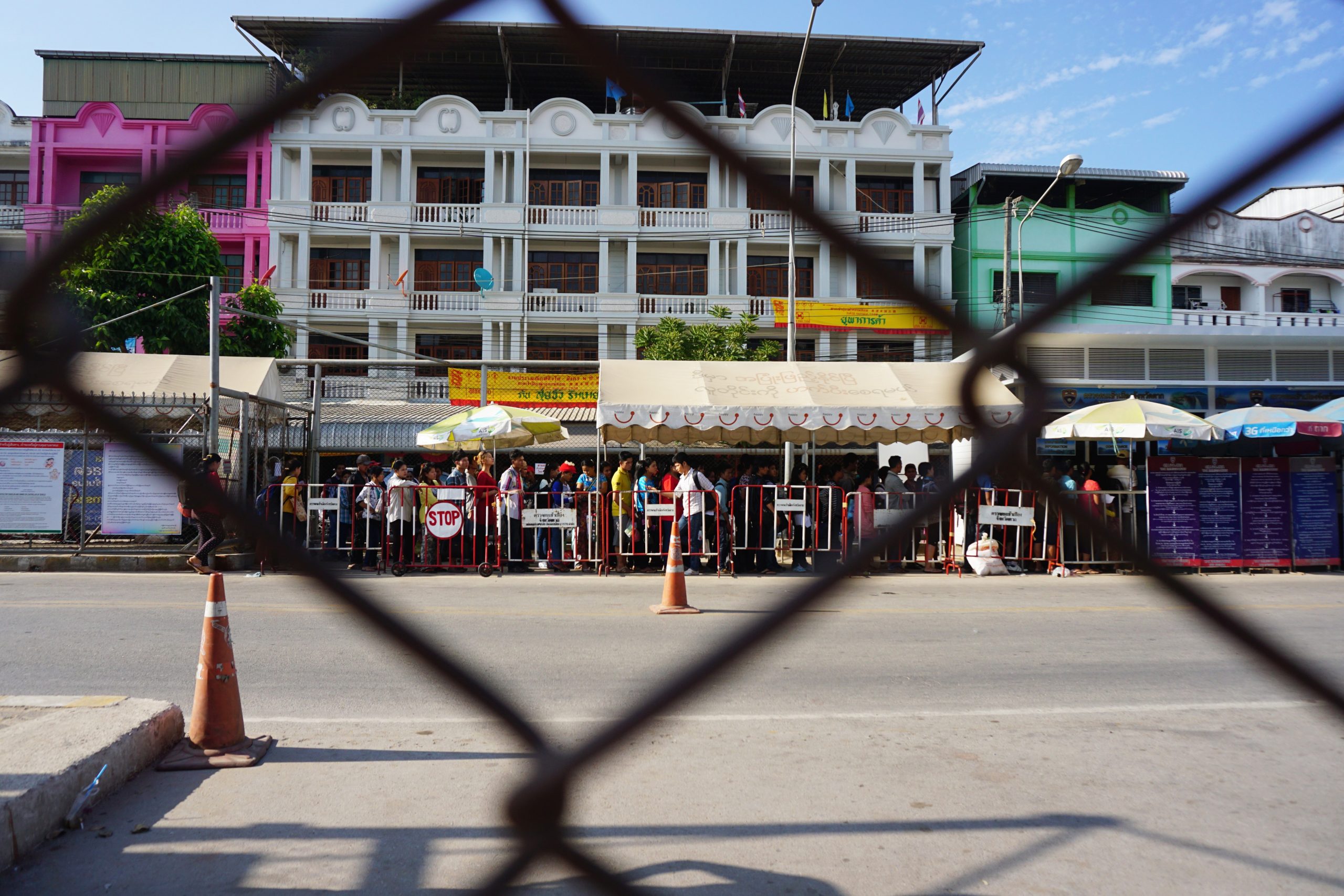Thailand is cracking down on migrant workers from neighbouring countries, saying they are “stealing jobs from Thais”, amid fears that anti-immigrant sentiment is rising as Southeast Asia’s second-largest economy stagnates.
In an operation led by the Thai labour department, police and troops on Wednesday raided a fresh produce market in Bangkok and arrested 14 people, most of them from neighbouring Burma.
“We have received many complaints about illegal immigrants working in markets including Vietnamese and even South Asians who were stealing jobs from Thais,” Thai immigration police chief Nathorn Phrosunthorn told Reuters.
“They should be doing the jobs that Thais don’t want to do like work as house cleaners,” he said.
Under the terms of a 2015 Memorandum of Understanding Vietnamese citizens are restricted in their employment in Thailand and can work only as manual labourers in Thailand’s fishing or construction sectors.
Cambodians also have been nabbed in the raids, along with people from Burma and Vietnam.
Anti-immigration feelings
More than 3 million migrants work in Thailand, the vast majority from Burma, according to the International Organization for Migration.
Thailand became wealthy compared to its neighbours when its economy boasted annual growth rates of over 7 percent in the 1980s and 1990s, drawing migrant workers from across the Greater Mekong Delta region and other parts of Asia. They mostly did jobs Thais tend to spurn, including backbreaking work in the fishing and construction sectors.
[related]
But, more than two years after the military government seized power and with Thailand’s economy on shaky ground, rights groups also see rising resentment against immigrants in Thailand, mirroring such sentiment elsewhere in the world.
“There seems to be a surge of national sentiment in Thai immigration policy claiming migrants from Vietnam, for example, are taking jobs that are reserved for Thai nationals,” Sunai Phasuk from Human Rights Watch told Reuters.
“We haven’t seen this kind of rise in anti-immigrant sentiment for decades. This has a lot to do economic concerns.”
Sanit Choklamlert, a shop keeper in Bangkok’s Silom business district, said migrants are seen as competitors for some Thais.
“There are too many Myanmar [Burmese] people here now and they’re fighting for the same jobs as us,” he said. “We need to send some back.”
Human trafficking
Thailand’s economy is on course to grow 3.0 percent in 2016 after expanding 2.8 percent in 2015 and only 0.7 percent in 2014.
Nathorn said the crackdown was not driven by an anti-immigrant policy. “We still need migrant labour. We just want to keep some order,” he said.
The raids have targeted fresh markets, restaurants, supermarkets and shopping malls. Around 153 immigrants were rounded up between 1 September and 26 September, according to labour department figures. Those caught face up to five years in prison, a fine of up to 3,000 baht (US$100) or deportation.
Migrants are often at risk of falling into the hands of human trafficking rings, who sell them into virtual slavery on plantations, timber mills and fishing boats, human rights groups say.
Thailand was removed from the bottom rung of the US State Department’s annual list of worst human trafficking offenders this year despite what the department described as “widespread forced labour” in the country’s vital seafood industry.



